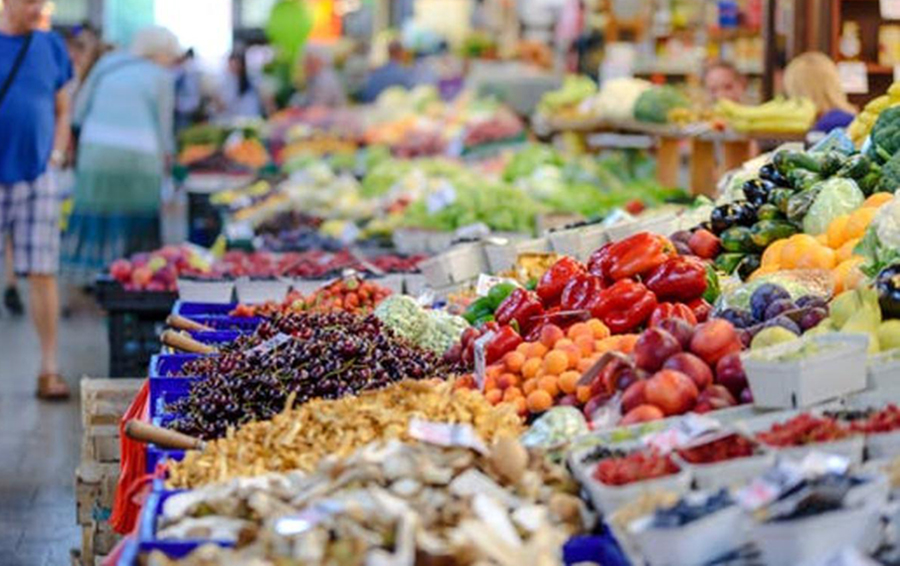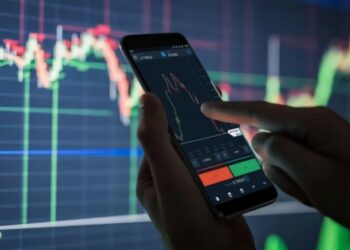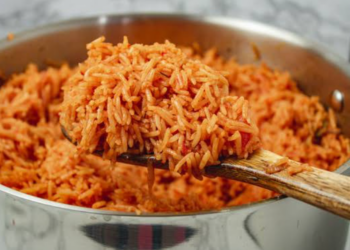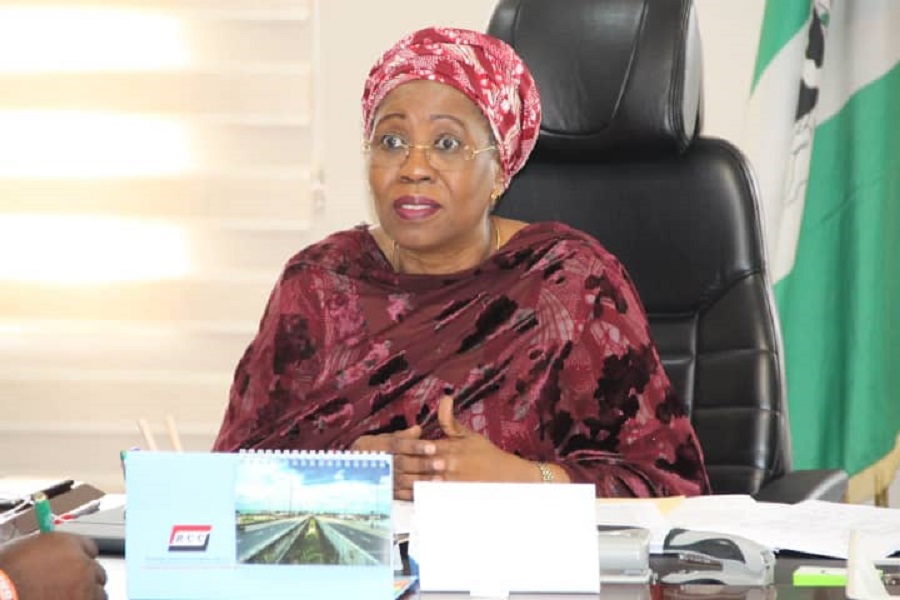According to the National Bureau of Statistics (NBS) in a report titled “Consumer Expenditure Pattern report for 2019,” the typical Nigerian family spends 57% of their income on food.
The cost of food in Nigeria increased 22.28% in May of 2021 compared to the same month in the previous year, again, according to the NBS. Food prices in Nigeria have been on an upward trajectory due to many factors, the primary being the activity of bandits and insurgents in parts of the North, leading to a fall in the supply of food; the border closure also did not help.
In summary, the cost of the biggest expenditure item on the budget of the typical Nigerian is up, so expenses are up.
READ: Pure water price doubles in one year as Nigerians suffer erosion of purchasing power
When effective demand for goods remains strong and prices of such and services rise without a corresponding rise in the goods produced and available, this leads to inflation.
From Picture 1 below, we see that Inflation in Nigeria has been double-digit since 2016, This means the legal tender in Nigeria, the Naira, has lost purchasing value.

Inflation happens when there is a surplus of supply in the currency used in a jurisdiction, and that surplus cash travels through the economy causing a hike in prices. A currency is valuable when it is scarce. Thus, the difference between $1 (USD) and N1 is scarcity and supply of both currencies. I will explain.
There is more USD printed than Naira by volume and amount, but USD is accepted as legal tender around the world, in Iran, North Korea, and Afghanistan. Ecuador’s legal tender is the US dollar; thus, the US can print $5 trillion and issue as 10-year bonds with very low coupon rates and other nations will buy those bonds or hold USD because they import goods from the US. So, its utility makes it valuable, and its attractiveness makes it scarce.
READ: Rising inflation push 7 million Nigerians below poverty line – World Bank
For example, crude oil is priced in USD, so to buy oil from Saudi Arabia, you need USD. This keeps the demand for US dollars, thereby maintaining its scarcity.
Naira, on the other hand, is simply legal tender only in Nigeria. Nigerian crude is sold in USD, not Naira. When the CBN prints Naira, the volume of cash in Nigeria goes up. If production of goods and services does not go up as well, then there is excess cash in the system with fewer goods to purchase, that excess cash pushes up prices in the market, leading to inflation as well.
The effect of inflation is serious. Looking at Table 1, if I invest N500,000 in a bond and earn even 15% per annum in Naira terms, I have a negative return in real terms because inflation is higher than 15%.
READ: Food crisis: Should Nigeria arm farmers to halt food price Inflation?
Inflation reduces the purchasing power of a currency; this means I have to grow my principal by taking a risk and earning a risk-adjusted return just to ensure my income retains the same buying power. Thus, if I earn N500,000, and inflation is 15%, I have to earn N610,000 or N110,000 more to have the same buying power as N500,000.
This is a reason why we must invest and take on risks. Without growing the principal sum, we lose the ability to buy the same items constantly because of price hikes caused by inflation.

How investors can maintain the value of their Naira earnings
To avoid inflation is next to impossible. There is inflation in almost every currency, but the difference is the level of inflation. The trick is to hold and invest cash in a currency that is not depreciating faster than the return earned in Naira. You can have a strategy to simply hold cash in funds that don’t pay fantastic returns but hold value. As the duration of the investment goes longer, it is advised you seek not just current income but some yield to compensate for expected inflation even in USD.
Below are a few recommendations on USD Fixed Income and dividend ETF for consideration to hold surplus naira cash to hedge and earn in USD against inflation. The investor also has to be clear on the risk and duration of the holdings. I propose you divide your cash by when you will need it, for example, before one year and above one year.
READ: CBN blames herdsmen and bandits for galloping inflation rate
These ETF offerings are available on Chaka which is now registered as a digital sub-broker by SEC Nigeria. I like the offering on FINTECH apps like Chaka because they allow you to invest and trade in smaller lot sizes than you would get via traditional brokers.

*Net annual total fees paid by the investor
**Year to Date total return on funds Net Aset Value NAV
Remember, the inflation effect is a loss of purchasing power. To regain purchasing power involves risks. I have stayed only on fixed income and dividend-paying ETFs, but if your investment duration is longer and you can take on more risk, then equities that pay a dividend including REIT (Real Estate Investment Trust) are another good option. Keep in mind that equities are more volatile and you can lose all, including the principal.





















This info was helpful.
Thanks for sharing.
Nice piece but I was expecting the writer to discuss some key factors that have contributed to the loss in value of the naira which include;
The increase in VAT, low productivity and the recent devaluation of the naira.
The federal government brokered an agreement with NLC to increase the minimum wage from 18,000 to 30,000 naira but the precondition for the agreement was the increase in VAT from 5% to 7.50%. Because the VAT has a multiplier effect, it affects everything that goes through any stage of value addition. Let’s consider a simple illustration. As a baber whose service cost 200 naira per head when the cost of sharpening his blade cost 250 naira when VAT was 5%, if the VAT increased from 5% to 7.50% and the cost of sharpening blade now cost 300 naira, the baber will adjust his price from 200 naira to 250 naira to make up for the increase in VAT. At the end of the day, the increase in VAT will result to a hike in the general price level.
Secondly, what determines the strength of a currency is the market forces of demand and supply. During Nigeria’s period of economic boom, we were producing almost everything we were using from cars, shoes, clothes, food and more. During that period, Nigeria was exporting to neighbouring African countries and outside the shores of Africa. Because we were a productive nation, there was a substantial demand for the naira hence, the value of the naira was very good. In fact, 80kobo was exchanged for a dollar in 1980’s but today, a dollar cost about 411 naira.
The devaluation of our currency has further worsened the strength of the naira because the main motive of devaluation is to drive export but looking at the policy closely, you will agree with me that the federal government devalue the naira in order to increase her borrowings. The borrowings are certainly going to be used to finance recurrent expenditure at the end of the day. Which leaves a huge burden on our shoulders and generations to come.
In conclusion, I feel there is a need for social justice and equitable distribution of resources. The federal government should reduce the current VAT and reduce the cost of governance by reducing the salary and allowances of those in government because I see no reason why a sitting senator who is pocketing about 30 million naira every month and is entitled to about 500 0000 naira monthly as newspaper allowance will go to same market with someone who is receiving 30, 000 naira monthly. Most states are not even paying the initial minimum wage of 18,000 naira. My mum earns 8000 naira monthly working for Plateau Environmental Protection and Sanitation Agency up to date.
In the word of Vilfredo Pareto, any reallocation of resources that leaves some better off and others worst off is inefficient. And Nigeria’s state of resource allocation is highly inefficient thereby leaving the average Nigerian vulnerable to price hike and making life so unbearable.
More so, I implore our government to invest in our economy. Revamp our refineries, finish the construction of Ajakuta steel company and ensure it is operating to full capacity because the steel company is the life blood of every economy particularly a developing country like Nigeria. If fully effective, the steel company will help us further develop our rail project across the federation, manufacture our own cars, plane, arms and will equally lower the cost of construction which will help reduce the nation’s infrastructural deficit and enable us to become an exporting nation and not an importing one.
Chaka remains the frontier of Global & Local stock market investing in Nigeria. Looking to build wealth with global investing… Chaka is your plug